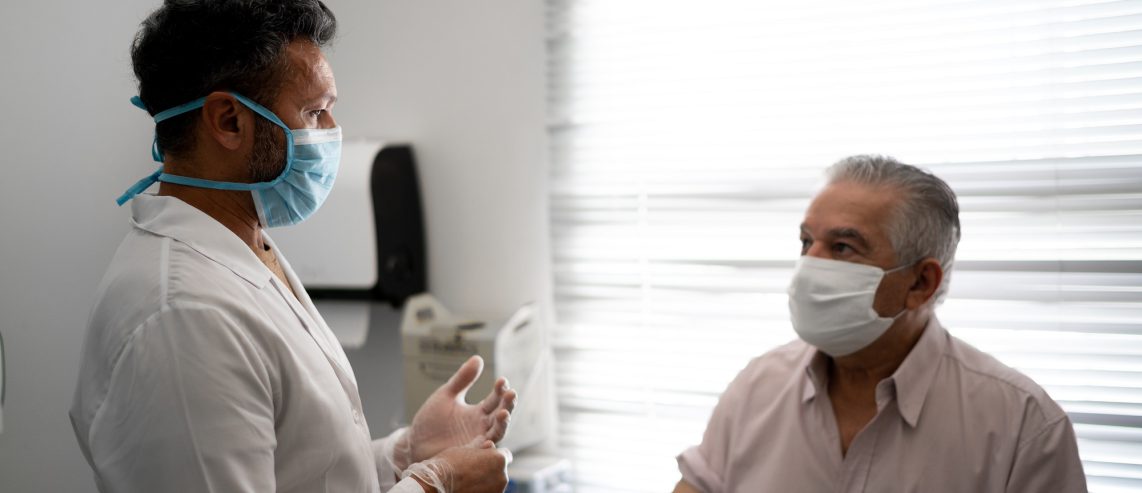Organ donation is a life-saving gift. The healthy donated organs allow recipients to live longer and healthier lives. Although many organs come from deceased donors, some people donate organs to others through living donation.
Living donors can donate only certain organs. These include:
- One kidney.
- One part (lobe) of the liver. (An intact liver has two lobes.)
In living donors, the liver regrows (regenerates) to replace the donated portion. This regrowth happens within a few months. Meanwhile, the donated part of the liver also regenerates in the recipient.
Kidneys don’t regenerate. If you donate a kidney to another person, you’ll live with only one kidney for the rest of your life.
Living organ donation can help someone get a healthy organ sooner than they might if they’re on a transplant waiting list. If you’re donating an organ, it’s important to get ready by taking care of your mental and physical health. Here are some steps you can take to prepare your body for organ donation.
Get Cleared to Donate
Whether you’re donating a kidney or part of your liver, you’ll undergo a full evaluation. First, you’ll meet with the transplant team to make sure you’re healthy enough to donate and that you’re a good match.
To donate a kidney, you must be between the ages of 18 and 75. To donate a liver, you must be between the ages of 18 and 60.
Your medical history matters too. To be a living kidney donor, you can’t have a history of:
- Cancer
- Diabetes
- Heart disease
- HIV
- Kidney stones
- Liver disease
Living liver donors can’t have:
- Active cancers.
- BMI greater than 32.
- Heart, kidney, or lung disease.
- Liver disease, like cirrhosis or hepatitis.
Never Miss a Beat!
Subscribe to Our HealthBeat Newsletter!
Thank you for subscribing!
You can now select the specific newsletters you'd like to receive.
You are already subscribed.
Subscribe to more newsletters in our email preference center.
Sorry, an error occurred. Please try again later.
Get Healthy Tips Sent to Your Phone!
Get Healthy to Prepare for Surgery
Your transplant team will help you get ready for surgery. Now’s the time to put in place healthy habits to help ensure a good outcome for both you and the recipient. To help you stay healthy, plan to:
- Stop smoking and using tobacco products.
- Stop drinking alcohol and using drugs.
If you take oral contraceptives (birth control), your doctor will have you stop about a month to eight weeks before surgery. This helps reduce the risk of blood clots after surgery.
You can make other changes to stay healthy before an organ donation. These include:
- Eating healthy foods.
- Getting plenty of exercise.
- Having a check-up, along with any screenings or tests your doctor recommends.
- Talking with your doctor about how organ donation will affect your health.
Tap Into Resources for Support and Care
Have questions about how to prepare for organ donation? Ask your transplant team about programs to help you get as healthy as possible before surgery. There are many available resources to help you learn more about living organ donation surgery.
If you have questions about how organ donation will affect your body or your health, reach out to your transplant team. They’ll connect you with information and support services to help you make the best decisions for you and your family.
Get Ready for Recovery
An important part of preparing your body for an organ donation is making plans for your recovery. Donors should expect to stay in the hospital for about a week after donating part of their liver. Kidney donors usually stay in the hospital for a few days after surgery.
You’ll also see your doctor for follow-up visits to make sure you’re healing well after the transplant. Arrange for someone else to help with household chores and caring for young children at first. While you’ll be able to manage light activities, it’s best to focus on taking good care of yourself so you can heal.
You can plan to return to work and other activities as soon as your doctor says it’s OK (usually a few weeks after surgery).
Editor's Note: This article was originally published on , and was last reviewed on .
Sources
American Transplant Foundation, Transplant FAQs, https://www.americantransplantfoundation.org/about-transplant/faqs/#toggle-id-31
Health Resources & Services Administration, Donate Organs While Alive, https://www.organdonor.gov/learn/process/living-donation
UPMC, Who Can Donate a Kidney?, https://www.upmc.com/services/transplant/kidney-pancreas/living-donor/candidates
UPMC, Who Can Donate a Liver?, https://www.upmc.com/services/transplant/liver/living-donor/candidates
UPMC, Living Kidney Donation Frequently Asked Questions, https://www.upmc.com/services/transplant/kidney-pancreas/living-donor/faq
UPMC, Living Donor Liver Transplant Frequently Asked Questions, https://www.upmc.com/services/transplant/liver/living-donor/faq
About Transplant Services
For more than four decades, UPMC Transplant Services has been a leader in organ transplantation. Our clinicians have performed more than 20,000 organ transplant procedures, making UPMC one of the foremost organ transplant centers in the world. We are home to some of the world’s foremost transplant experts and take on some of the most challenging cases. Through research, we have developed new therapies that provide our patients better outcomes — so organ recipients can enjoy better health with fewer restrictions. Above all, we are committed to providing compassionate, complete care that can change – and save – our patients’ lives. Visit our website to find a provider near you.
